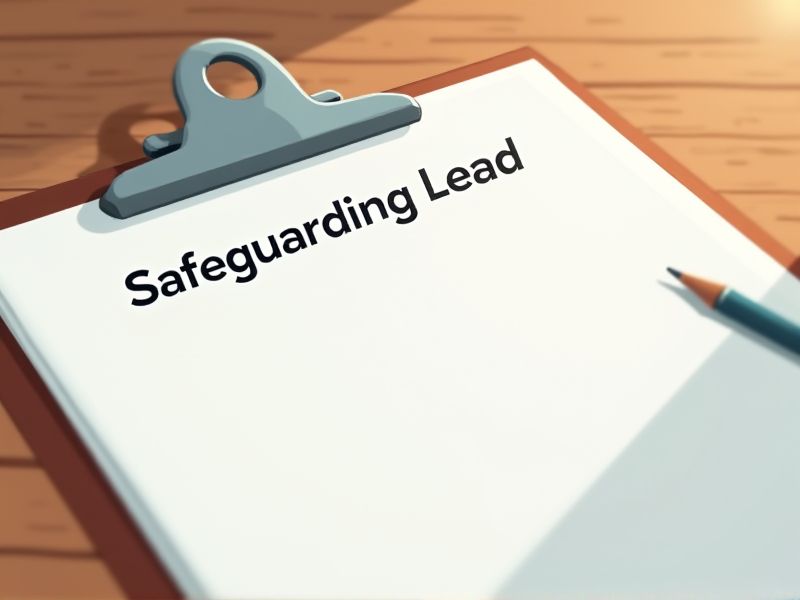
A Safeguarding Lead plays a crucial role in protecting vulnerable groups, necessitating a firm understanding of relevant policies and procedures. Certification ensures that the individual has the requisite knowledge to identify and prevent potential risks effectively. Holding certain credentials also validates a professional's commitment to maintaining a safe and ethical environment. The following are essential certifications for a Safeguarding Lead.
Working Together to Safeguard Children Certification
The Working Together to Safeguard Children Certification equips the safeguarding lead with essential knowledge of child protection standards, directly impacting their ability to identify and respond to potential abuse cases. Enhanced understanding from the certification allows the safeguarding lead to work more effectively with other professionals, fostering a collaborative approach to child safety. The certification ensures the safeguarding lead stays updated on legal requirements and guidelines, reducing the risk of non-compliance that could jeopardize the organization. Possessing this certification reinforces trust among stakeholders, as it demonstrates a commitment to maintaining high safeguarding standards within the organization.
Child Protection and Safeguarding Training
Child Protection and Safeguarding Training equips Safeguarding Leads with the necessary skills to identify, assess, and respond to child welfare concerns effectively. This training provides in-depth knowledge of legal frameworks and policies, ensuring that interventions are compliant with regulations. It enhances the ability of Safeguarding Leads to communicate effectively with all stakeholders, fostering a safer environment for children. When training is prioritized, the overall organizational culture becomes more vigilant and proactive in protecting vulnerable children.
Adult Safeguarding and Protection Certification
Being certified in Adult Safeguarding and Protection equips a safeguarding lead with the necessary skills and knowledge to identify and address potential risks effectively. Certification ensures they are up-to-date with current legislation and best practices, which is crucial in managing adult safety concerns. Proper certification enhances credibility and trust among staff, clients, and stakeholders, facilitating a safer environment. A lack of formal certification could lead to negligence or improper handling of sensitive situations, potentially resulting in legal repercussions and damage to an organization's reputation.
Risk Assessment in Safeguarding Leadership Certification
Risk assessment in safeguarding leadership certification equips safeguarding leads with the skills to identify and evaluate potential risks, ensuring proactive strategies are in place to prevent harm. Without a structured understanding of potential hazards, safeguarding measures can fail, leading to increased vulnerability among those being protected. Certification in this area fosters a culture of accountability and confidence, enabling leads to make informed decisions that prioritize safety and well-being. Inconsistent or inadequate risk assessments can result in legal ramifications or damage to institutional reputation, highlighting the importance of comprehensive training.
Trauma-Informed Care in Safeguarding Certification
Trauma-informed care in safeguarding certification equips safeguarding leads with the skills to recognize and appropriately respond to trauma-related behaviors in individuals. This knowledge helps to create a safer and more supportive environment for those affected by trauma, reducing the risk of re-traumatization. Understanding trauma's impact on behavior enhances the lead's ability to implement effective safeguarding measures and optimize outcomes. Formal certification ensures that safeguarding leads meet established standards, promoting consistency and reliability in handling sensitive situations.
Prevent Duty Training Certification
Prevent Duty Training Certification is essential for a Safeguarding Lead as it equips them with the knowledge to identify and respond to early signs of radicalization. By understanding the local and national context of extremism, they can implement effective strategies to protect vulnerable individuals. The training enhances the ability to work collaboratively with external agencies, ensuring a comprehensive safeguarding approach. It also aids in fulfilling legal obligations under the Prevent duty, ensuring compliance and promoting a safe environment for all.
Mental Health First Aid Certification
Mental Health First Aid Certification equips a Safeguarding Lead with critical skills to identify and respond to mental health issues, ensuring timely intervention. This certification enhances the Lead's ability to create a supportive environment, reducing the risk of harm to individuals under their care. Knowledge gained from this training promotes effective communication with those experiencing mental distress, facilitating better outcomes. Informed safeguarding practices result in a more resilient and mentally healthy community.
Domestic Violence and Abuse Awareness Certification
Domestic Violence and Abuse Awareness Certification equips safeguarding leads with the knowledge to recognize warning signs of abuse, which is crucial for early intervention. It provides them with the skills necessary to effectively support victims and navigate complex legal and social service systems. Certification ensures that safeguarding leads are up-to-date with the latest data and strategies for preventing and addressing domestic violence. This specialized training helps in maintaining a safe environment by promoting a culture of informed vigilance and accountability in organizations.
Equality and Diversity in Safeguarding Certification
Equality and Diversity in Safeguarding Certification is needed for a Safeguarding Lead because it equips them with the knowledge to recognize and address biases that may affect the protection process. This certification helps ensure that safeguarding practices are inclusive and sensitive to the diverse needs of individuals, preventing discrimination based on race, religion, gender, or disability. By understanding the principles of equality and diversity, Safeguarding Leads can create a more equitable environment for all individuals under their care. The certification also enables them to develop and implement strategies that promote a culture of respect and fairness, which is crucial for effective safeguarding.
Data Protection and Privacy in Safeguarding Certification
Data Protection and Privacy in Safeguarding Certification equips a Safeguarding Lead with essential knowledge to handle sensitive information responsibly. This certification ensures compliance with relevant data protection laws, thereby reducing the risk of legal liabilities. A trained lead can more effectively implement strategies that protect individuals' privacy, which enhances trust and cooperation. Additionally, robust data management practices through certification improve the overall effectiveness and credibility of safeguarding initiatives.
Summary
By obtaining certifications, you enhance your credibility and trustworthiness. This increased expertise often leads to more effective implementation of safeguarding policies. As a result, the organization's safety protocols become more robust. This improved environment typically ensures greater protection and well-being of those under the organization's care.
